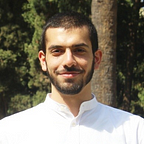On Development & Money
A primer for the energy-entropy-information nexus
I have presented the energy-entropy-information in my article shown below. However, a reminder that money does not have inherent value, and that development goes beyond the economic, is needed. For the sake of brevity, this has been moved here.
In a previous piece, I have stated that development is allowing life to thrive. I have also made it clear that development could only be sustainable, and economic development is amputated development.
Development
Entropy is the central pillar of the energy-entropy-information (EEI) nexus. The chaos it describes and the decay it inflicts are the opposite of development. As we see in Nature, if left alone, entropy grows. Work must be done to decrease it, thereby increasing development, or at least keep it constant, a constant struggle by itself.
Development is about building structures which free up energy and information.
Development is allowing life to thrive. Within the nexus framework, development is about building structures which free up energy and information, making them available even when the latter might have previously been unknown.
Several metrics could be adopted to measuring successful development. In the context of web development, you perhaps survey the user to see whether a website has helped him achieve a particular objective. You might also be interested in reducing the number of clicks, the page loads the user has to go through before reaching his target, making your website more accessible.
“The executive exists to make sensible exceptions to general rules.”
Likewise is perhaps the real objective of a public bureaucrat. It is to streamline the constituents through their administrative procedures. Quoting Elting Morison, “The executive exists to make sensible exceptions to general rules.” Streamlining is meant to facilitate development while upkeeping the governance structures meant to amplify it. Administration, a human artifact, is imperfect and subject to improvement.
Wasting people’s time, energy, and knowledge is an injustice by itself.
You could then understand governance structures as suboptimal structures dynamically changing towards an optimum, that which upholds a just society. Even by simply not utilizing, for at least improving governance structures, wasting people’s time, energy, and knowledge is an injustice by itself.
It should be evident by now that development, the building of structures which free energy and information to empower the people to learn and act, is built by the same energy and information. Development is the closure of a feedback cycle, and the opening of new possibilities. Not only does it allow you to tap your own energy and knowledge, but also unchains your society from suboptimal structures trapping them and your capacity to learn.
Fitness is one example where the energy you put in helps develop your physical structure at different — cellular, muscular,… — levels, empowering you to do more, exercise or otherwise. This becomes even clearer with household appliances. It is not by chance that many design labs attempt to tackle development by introducing new biofuel stoves or gravity lamps.
Arriving in a foreign land, with no fridge in the hotel room, I have spent days on fruits and bread whilst I attempt to understand what options I have at the 饭店 or 市场.
Moving to a studio, it felt as though I have unlocked a new level in the game. The nearby market had more choices which I comprehend. I suddenly got access to a pantry, a refrigerator and a stove, allowing for storing ingredients and cooking nutritious meals. Above all, the washing machine stared at me with its open door, promising me I do not have to waste more time handwashing garments. The new location also meant I did not have to waste an hour on a bus in each direction.
Being poor is expensive, but it is not about the money.
While this has been within a transitionary period of settling down in a new country, it helps highlight the cycle of development, and its counter-cycle, perhaps called impoverishment. Poverty is a vicious cycle. Being poor is expensive, but it is not about the money solely. It is also about not owning or keeping your time, your privacy, your health, …
Overall, development is the fruit of our conscious efforts, utilizing available knowledge, to organize our lives.
Money
When you are convinced that development is far larger than “economic” development, you start to see that money only has transactional value. Money is the energy you expend, the hard work you put in to earn. In the other direction, money which buys you power is power. Money which funds your research is knowledge. Money which buys you back your time is time.
Without delving further into the concept, consider for a moment that two million dollars could buy you a Bentley when the investment of a similar amount could employ nearly 50 people, in the US or Lebanon. In simpler terms, a washing machine is a good investment.
By understanding money through transactions, instead of getting stuck in a local maximum of a fancy belongings, you should be able to maximize your impact by balancing the energy, experience, and transactions of your work.
In brief, development, is structure arising from working to keep entropy at bay. Its purpose is to free the energy and knowledge of the constituents of the system. Money is to be understood through its transactional value in this framework.
